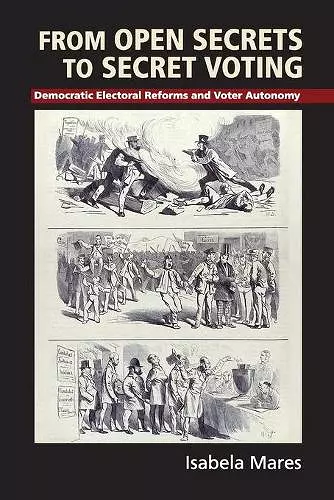From Open Secrets to Secret Voting
Democratic Electoral Reforms and Voter Autonomy
Format:Paperback
Publisher:Cambridge University Press
Published:17th Jun '15
Currently unavailable, and unfortunately no date known when it will be back
This paperback is available in another edition too:
- Hardback£74.99(9781107100213)

This book presents an account of the adoption of electoral reforms democratizing electoral practices in nineteenth century European countries.
How were reforms that aimed to reduce electoral intimidation adopted? This book provides a micro-historical analysis of the adoption of reforms protecting voter autonomy. It shows that changes in district-level economic and political conditions led to the formation of an encompassing political coalition supporting these electoral reforms.The expansion of suffrage and the introduction of elections are momentous political changes that represent only the first steps in the process of democratization. In the absence of institutions that protect the electoral autonomy of voters against a range of actors who seek to influence voting decisions, political rights can be just hollow promises. This book examines the adoption of electoral reforms that protected the autonomy of voters during elections and sought to minimize undue electoral influences over decisions made at the ballot box. Empirically, it focuses on the adoption of reforms protecting electoral secrecy in Imperial Germany during the period between 1870 and 1912. Empirically, the book provides a micro-historical analysis of the democratization of electoral practices, by showing how changes in district level economic and political conditions contributed to the formation of an encompassing political coalition supporting the adoption of electoral reforms.
'An admirable piece of work that combines an impressive knowledge of German nineteenth-century history with skillful archival research and an astonishing command of quantitative methods. I find the idea of voter intimidation and the costs of voter repression as leading terms in a local-level quantitative analysis of electoral practices and reforms in an emerging nation-state a major step forward in the analysis of institutional change. The way the book moves between qualitative narratives of historical local conditions and sophisticated quantitative analyses is exemplary and sets a standard for social science taking history seriously.' Wolfgang Streeck, Max Planck Institute for the Study of Societies
ISBN: 9781107495296
Dimensions: 229mm x 152mm x 15mm
Weight: 410g
286 pages